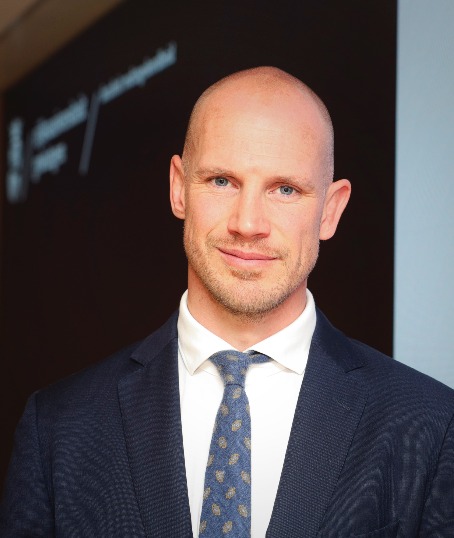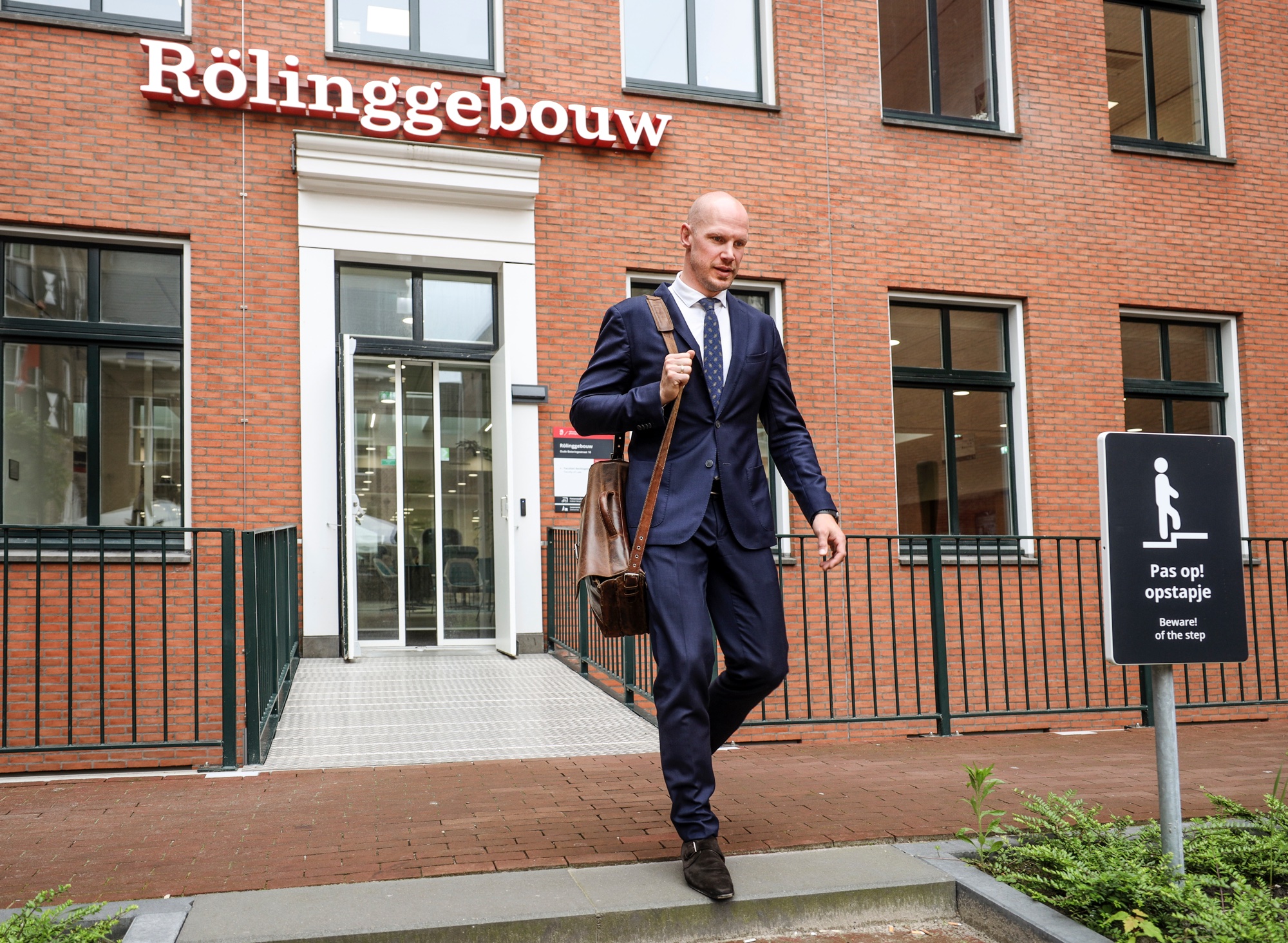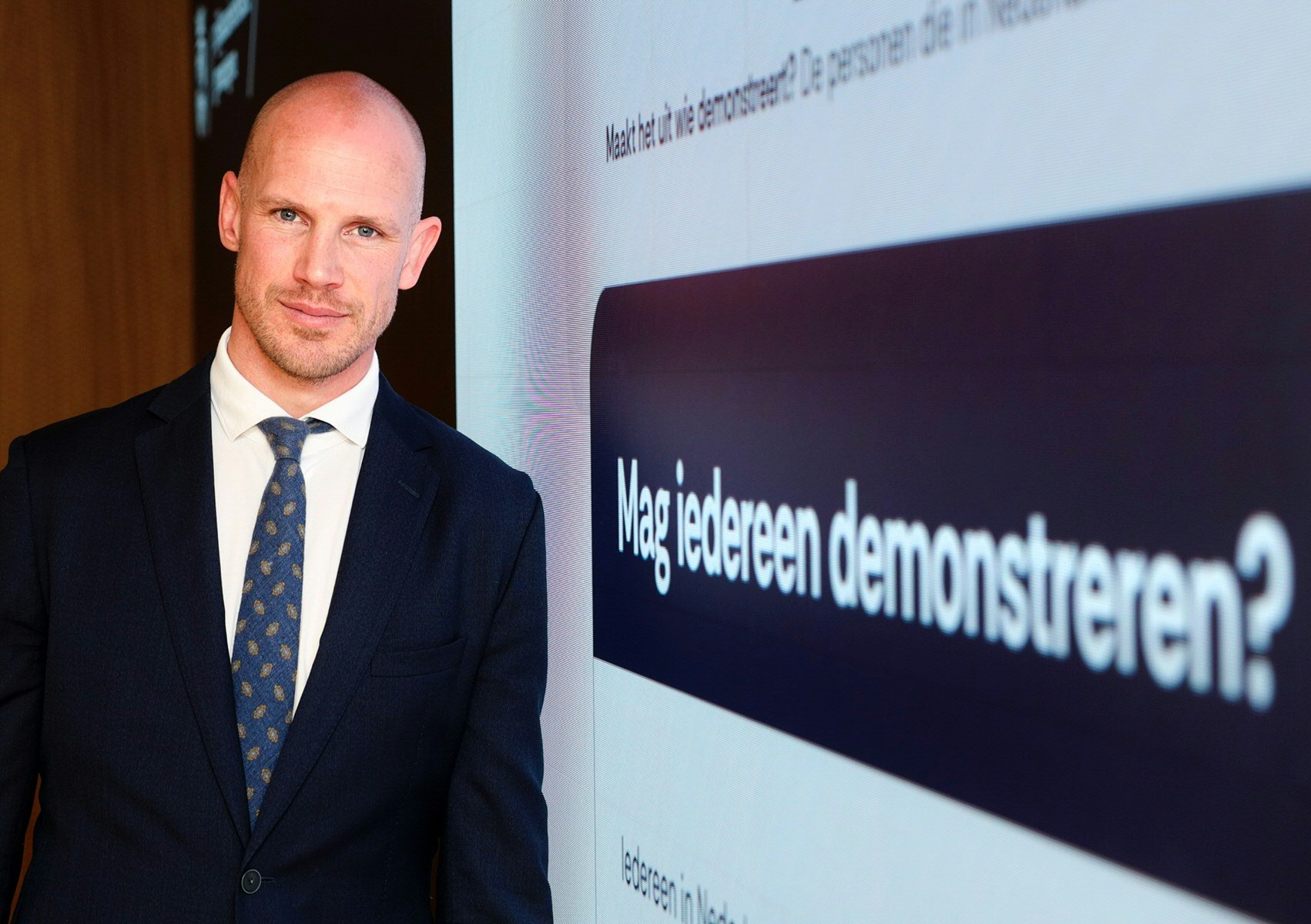Researchers explain right to demonstrate to all and sundry
What exactly does the right to demonstrate entail? What may and must the government do in the event of demonstrations, and what rights and obligations do protesters have? Demonstration expert Berend Roorda receives questions on this subject almost daily from the media and legal practitioners, especially now that protests are very topical in the Netherlands. With a new website, he makes all knowledge and regulations accessible to everyone. ‘How wonderful is it that we can answer many legal questions about demonstrations on a website that is accessible and understandable for everyone?’
Text: Maud Brongers / Photos: Henk Veenstra

Berend Roorda, associate professor at the Faculty of Law, is concerned with the question: ‘How can we make sure that we can live together in a society in a way that provides space for each person, without harming the other?’ He supervises eight PhD students who are conducting research on topics involving tension between fundamental rights on the one hand and maintaining law and order on the other. One of them is Noor Swart. She researches cases in which the right to demonstrate clashes with the rights of others, such as demonstrations at abortion clinics or at private homes. Given the topicality and the many questions Roorda and Swart receive, the idea of setting up a website on the right to demonstrate arose. Together with science communication officer Liesbeth Smit from The Online Scientist, they want to use it to make the right to demonstrate accessible and understandable for everyone.
A source of information
The website www.demonstratierecht.nl (in Dutch) comprises three sections: a list of frequently asked questions (FAQs) of nearly 150 questions on the right of demonstration, an advice tool that uses a decision tree to provide legal advice on a specific demonstration, and a knowledge base where interested parties can delve further into the material. The FAQs provide clear answers to common questions and help users find information quickly.
Advice tool
The advice tool is designed to provide instant legal advice after the user has responded to about 25 questions. This tool is particularly useful for demonstrators, officials, or others who do not know where to start with their questions about a demonstration. By answering the questions, Roorda and Swart’s advice can indicate the major areas of concern regarding the demonstration. These concerns are often unknown to the general public. An example of this could be the question whether the demonstration route crosses several municipalities. In that case, the chair of the safety region (Veiligheidsregio) could be responsible for regulating the demonstration, rather than the mayor of each individual municipality. This will make the process more efficient and ensure a coordinated approach.
Knowledge base
The knowledge base contains the most important legislation and regulations on the right to demonstrate, summaries of recent court decisions on demonstrations, as well as a library of freely accessible articles, books, and reports on the right to demonstrate. Roorda: ‘The library on the website in particular is intended for people who want to dig a little deeper into the rules on demonstrations.’ Case law summaries answer four questions for each case: what are the facts, what is the central question, how does the judge answer that question, and what can we learn from this? Roorda emphasizes that the FAQs, the advice tool, and the knowledge base are not completely separate, but rather cross-link to each other. For instance, the FAQs and advice tool refer to court decisions that are elaborated in more detail in the knowledge base. This results in a coherent structure where users can find both basic information and the details of the right to demonstrate.

Expert in the rules of demonstrations
When it comes to conducting research, the rules for demonstrations are Roorda’s 'first love'. He is already a frequently consulted, national expert in this field. In the period from 2012 to 2016, under the supervision of Jan Brouwer, at the time Professor of General Law at the University of Groningen, and Jon Schilder, Professor of Constitutional and Administrative Law at the Free University of Amsterdam, he wrote his PhD thesis on the subject. During this PhD trajectory, he and his supervisors, at the request of the Ministry of the Interior and Kingdom Relations, evaluated the Dutch Public Assemblies Act (Wet openbare manifestaties), which had existed for about 25 years at the time in 2015.
Societal changes
‘The more research I have done on the right to demonstrate, the more I have also become convinced of its value,’ says Roorda. ‘Demonstrations have triggered major societal developments and spearheaded the creation of key elements of our current democratic rule of law, such as women’s rights, the right to join a trade union, the right to vote, and the right to equality. Moreover, there are several examples of demonstrations that have led to a democratic change, such as the ones during the Arab Spring in the Arab world.
Hardening of the social climate
At the same time, Roorda sees a hardening in the legislation on demonstrations. This is partly a consequence of the authorities' firm approach, for example during the coronavirus pandemic, when demonstrations were frequently banned. This has damaged the trust of protesters. On the other hand, some protest organizations and individual demonstrators sometimes also very deliberately seek or cross the boundaries to draw more attention, which in some cases leads to criminal offences.

Societal impact
Roorda hopes that an increase in interest in and knowledge of the right to demonstrate will lead to a widespread recognition of the value of this fundamental right. This recognition will ensure that demonstrations are given space, allowing them to continue to influence and shape our society in the future. In addition, he mentions that the new website may help clarify the boundaries of the law and how it can be exercised and regulated responsibly. ‘I hope that with the website, we will bring into the limelight clearly that the right to demonstrate is far-reaching and that the government has a very important role in this. After all, the government’s primary task is to protect, facilitate, respect, and cherish the exercise of this fundamental right, so that people can express themselves collectively and peacefully,’ Roorda adds.
The website www.demonstratierecht.nl was launched on 5 June 2024. The Ministry of the Interior and Kingdom Relations funded the website but did not interfere with its content, Roorda emphasizes. The website is independently run. Besides Roorda and Swart, the team includes Laurent Jensma, Law and IT specialist, student assistants Anouk Alberts and Sarah Horjus, Research Master’s students, and the aforementioned Liesbeth Smit from The Online Scientist. Many external parties—including all mayors of the Netherlands, police and judiciary officials, civil society organizations, protesters, lawyers, academics—were also approached with questions about the design of the website. Much input for the FAQs was collected with the help of these parties. This knowledge was also used to develop the advice tool in a way that it will be able to identify any relevant information that is needed to provide good legal advice.
More information
| Last modified: | 18 June 2024 08.50 a.m. |
More news
-
05 March 2025
Women in Science
The UG celebrates International Women’s Day with a special photo series: Women in Science.
-
04 February 2025
'To entice is okay, to mislead is not'
In the supermarket, there is a carton of ‘blackcurrant juice’. At least, that is what it is called and what the picture on the packaging suggests. The list of ingredients, however, states that the contents are mainly made of apples and grapes. Is...
-
23 January 2025
Two UG researchers join The Young Academy
Prof. Björn Hoops and Dr Esther Metting are joining The Young Academy (De Jonge Akademie, DJA) of the Royal Netherlands Academy of Arts and Sciences (Koningklijke Nederlandse Akademie van Wetenschappen, KNAW). Every year, the DJA selects 10 talented...
